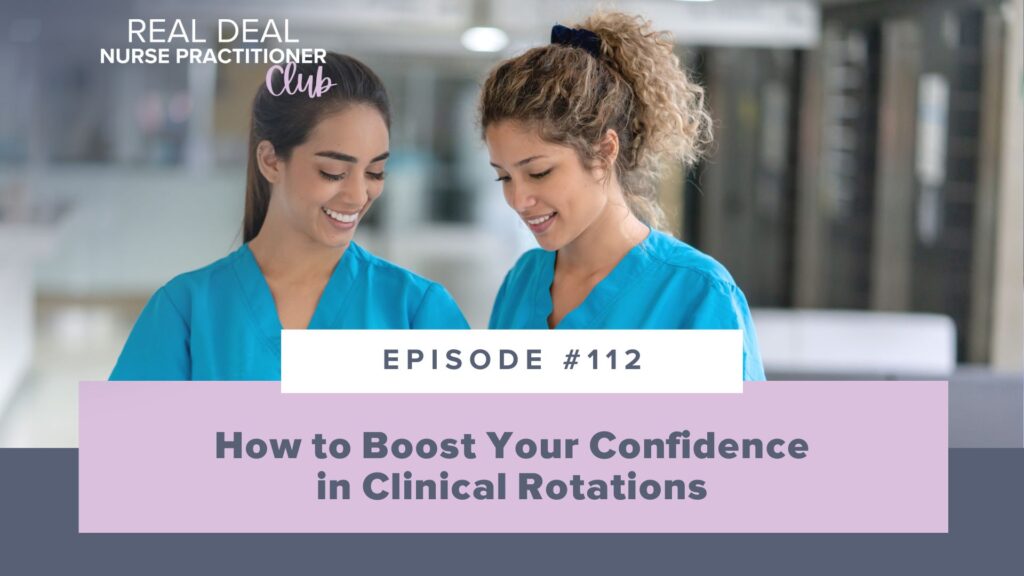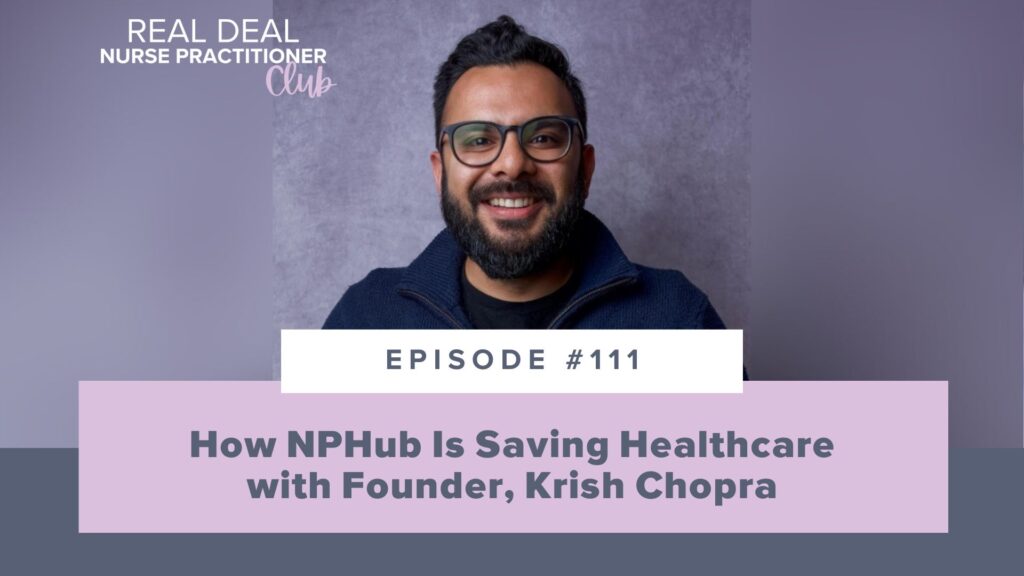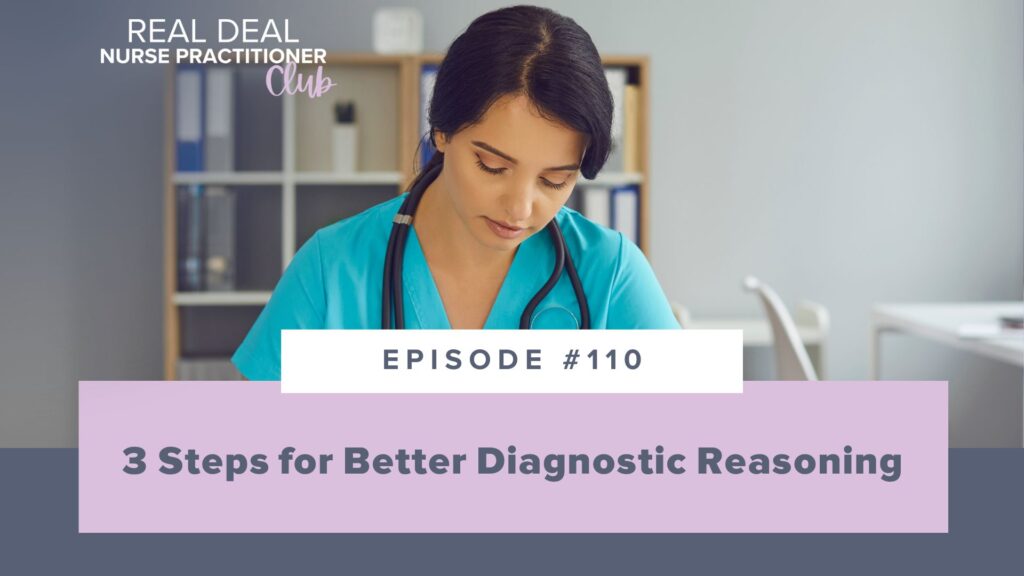Ep #95: Continuing Education: Staying Current as a Nurse Practitioner
- by
- Sep 06, 2023
- Podcasts
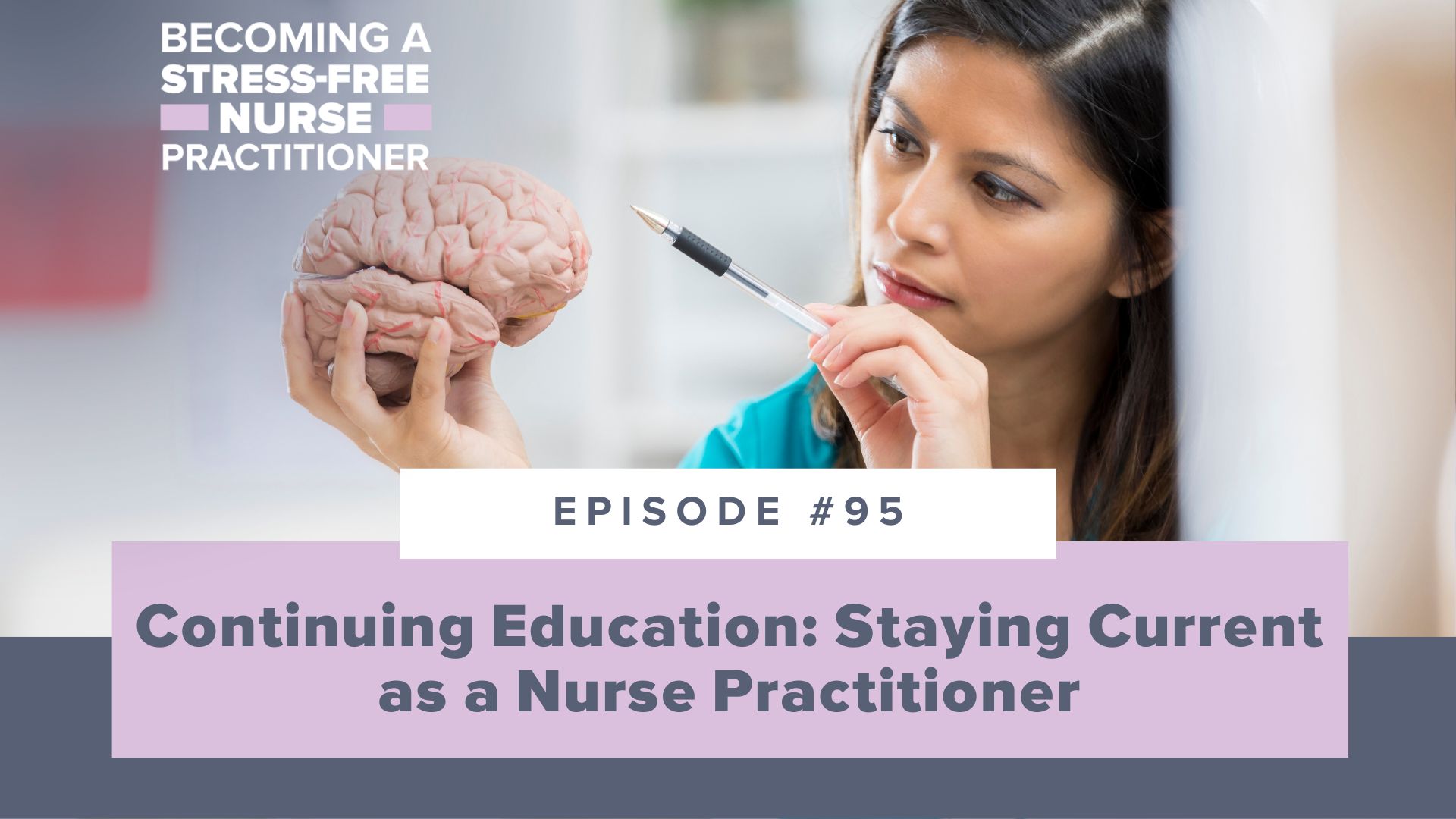
Here at NP Reviews, we love continuing education. A thirst for knowledge in your personal life is important, but CEs are required to keep up with your certifications, and most states require them to maintain licenses, such as RN, NP, and even obtaining your DEA license. This may sound overwhelming, but CEs can actually be a lot of fun.
Staying up to date with evidence-based practice becomes way easier when you have a deep passion for learning and knowledge. To learn why you need continuing education and how to choose what CEs are right for you, listen up.
Tune in this week as Anna walks us through her favorite ways to get continuing education as a healthcare provider. She’s sharing how to stay up to date with the latest research, guidelines, and best practices, as well as engaging in personal development so you can provide high-quality, evidence-based care to your patients as a nurse or nurse practitioner.
If you’re looking for support, no matter what phase of your nurse practitioner journey you’re currently in, I have communities available for both students and new nurse practitioners. In these communities, we work to uplift one another and grow this profession together every day, so click here to check them out!
What You Will Discover:
- Why continuing education matters for nurse practitioners.
- A history of continuing education for nurse practitioners and the associated requirements for certification and licensure.
- The different types of continuing education opportunities for nurse practitioners.
- How to embrace continuing education in your NP career.
- The most convenient and fun ways to engage in continuing education.
Featured on the Show:
- If you’re looking for extra support, I have communities available for both students and new nurse practitioners. Click here if you’re a student, and click here if you’re a new NP!
- Follow me on: Facebook | Instagram | YouTube | TikTok
- National Organization of Nurse Practitioner Faculties (NONPF)
- American Nurses Credentialing Center (ANCC)
- American Association of Nurse Practitioners
Full Episode Transcript:

Welcome to Becoming a Stress-Free Nurse Practitioner, a show for new NPs and students that want to pass their board exam the first time and make that transition from RN to NP as seamless as possible. I’m your host Sarah Michelle. Now, let’s dive into today’s episode.
Hello, everybody. And welcome back to another episode. It’s Anna here and today I’m going to do this episode solo and talk about one of my favorite things, which is continuing education. So, as you all know, I have a passion for education and I just love learning, whether it’s all things healthcare, or even just learning new personal hobbies, like how to crochet or how to make a dessert tart, which by the way, I’m not very good at.
Growing my knowledge as an educator and a nurse practitioner is so, so important. And it’s also vitally important to all of you as providers. So continuing education, or CEs as we call them for short, are not only required to keep up on your certification, but most states require them to maintain licenses like your RN license, your NP license, and even getting your DEA license in some states as well.
And on top of that, it is a crucial part to staying up to date with evidence-based practice. So let’s talk a little bit about why we need CEs, how to choose what CEs are right for you, and some of my favorite ways to get them in this episode.
So all healthcare providers are responsible for staying current with the latest research, guidelines and best practices, right? And continuing education is essential for ensuring that we provide high quality, evidence-based care to our patients. So it isn’t just about staying up to date with the latest information, though, right? It can also be about professional development and growth.
By participating in continuing education opportunities, we can develop new skills, we can explore new areas of practice. And CEs, they are the perfect opportunity to say, hey, I’ve been really interested in something like suturing.
So not only do you get to go learn a new skill, but you also fulfill the requirements for your certification and your license at the same time. So really, that is a true win/win. Ultimately, it can lead to increased job satisfaction. And, of course, what we are all here for, better patient outcomes as well.
So how did we even become required to obtain CEs, you ask? Well, we have to go all the way back to the beginning to the 1960s when NPs were just starting to be recognized. The 60s were truly what I think of as the dawn of the nurse practitioner. This is when programs were created, NPs were being recognized as advanced practice providers and there was really so much growth in the NP world. So it only makes sense that continuing education for NPs started around then as well.
And if you remember, the NP roll, it was created as a way to address the shortage of primary care providers, and really a way to provide more accessible and affordable health care to underserved communities.
So as that NP role evolved and expanded, it became clear that ongoing education was necessary to ensure that NPs were providing that high quality evidence-based care. So, much like doctors at the time, it was decided that NPs would also have to obtain continuing education hours or those CE hours.
Now, in the 70s, the National Organization of Nurse Practitioner Faculties, or you will hear that referred to as NONPF, was established to promote the education and training of NPs. So NONPF was instrumental in the development of NP education standards and it included that requirement for continuing education.
In the 1980s the American Nurses Association recognized the need for continuing education and established the American Nurses Credentialing Center or ANCC, which I know you are all very familiar with. And this essentially was created to provide certification and continuing education for NPs.
And then a while after, AANP was also formed and started requiring CEs for certification as well. Now, as we know, ANCC is one of the leading organizations for NP certification along with AANP. And both are huge advocates of continuing education. And it was actually not even until the 1990s when a lot of states began to require NPs to acquire a certain amount of CE credits in order to maintain their license to practice.
Now, RNs at the time were already required to meet those standards, so really it only made sense to expand this into NP practice as well. And of course, you all know today continuing education is such an important part of the NP profession and is required for certification and licensure.
Now, this still varies greatly state to state in regards to CE requirements, but most states do require some form of CEs to maintain RN and NP licenses. So there are many different types of continuing education opportunities available to NPs. So these include online courses, conferences, and even workshops. And these can be in a bunch of different areas or specialties.
So, when choosing your continuing education opportunities, it’s important to consider the quality and the relevance of the program. And it’s also important to remember, you all, that continuing education is not a one time event. Rather think of this as a life-long process. We are all life-long learners. Providers are continually learning and growing throughout their careers in order to provide the best possible care to patients.
Now, I will say this, there are even cruises offered if you’re looking for something fun or different. And really, there are opportunities for whatever area you are clinically interested in. I promise you can find it in CE form, and that is the true beauty of CEs, is there is something for everybody.
So let’s talk about some of the most popular types. First up, we have conferences and conferences are one of my personal favorites. They’re a great way to learn about the latest research, while also providing an opportunity to network with other healthcare professionals.
Now, some conferences are focused on a specific area of practice, while others are more general in nature. There are, of course, also those huge national conferences like AANP’s that we had in New Orleans this past year. And not only was that one a great way to network, but I know it had amazing speakers and lectures as well and it was so fun. It was just such an amazing experience for me and our team.
And then, of course, a very, very popular one are online courses for CEs. As you probably know, SMNP reviews, all of our courses are accredited by AANP and ANCC for CEs. And online courses, they’re such a convenient way for NPs to earn continuing education credits from the comfort of your own home. Especially with the cost of travel these days and everyone’s busy schedules, online can be a really great convenient option.
And many organizations and universities offer online courses in a variety of topics from pharmacology to patient management. Online CEs, honestly, I think are one of the best ways to keep up with any new treatments and drugs on the market as well. So if you don’t already, I definitely recommend subscribing to some NP organization newsletters or NP journals, they are almost always sending out online CE opportunities.
All right, another one of my favorite ways to gain CEs is through workshops. So workshops are typically shorter and more hands-on than conferences or online courses. And in the COVID era they could be a bit harder to come by, but there are starting to be virtual ones popping up where they even send you the materials and you can attend it virtually. But now they’re starting to become more and more in-person.
Now, they may focus on a specific skill or procedure and then they provide hands-on training. So this is one of the best ways to practice skills like suturing, which is always a great skill to have on your resume and for practice. Workshops really are a great way for NPs to develop those skills, or I like to use them to refresh existing ones or ones that I might not use a whole lot in practice.
Now, a little known way to get CEs that I do want to just touch on briefly is journal clubs. So what the heck are journal clubs? Well, I like to think of journal clubs as like an NP book club. Again, these are mostly virtual these days, but they can also be in-person as well. They typically involve reading and discussing a recent article or a study with other nurse practitioners or health care professionals.
So journal clubs are a great way to deepen your understanding of a specific topic and just engage in critical thinking and discussion with your peers. It can also be a fabulous way to network, and you know I am always all about that networking.
You may also hear of webinars. Webinars are a little different than online courses. So webinars are live online presentations that can be attended from anywhere. But unlike typical online CE courses, they’re live. So they can be a little bit more engaging. And I think they’re a great way to listen to all sorts of different voices on a variety of topics.
So there are webinars on patient advocacy, resume building, different treatments for chronic disease, truly anything and everything. And again, a great way to learn about new topics, hear from experts in the field and at the same time, of course, earning those continuing education credits.
One last way I want to talk about, and I see this in our new NP Facebook group a lot is through fellowship programs. Fellowship programs are really awesome, especially for new grads. They are specialized education programs that provide advanced training in a specific area of practice, like pediatrics, oncology, cardiology, they even have some fellowship programs for family practice.
And these programs include didactic education, clinical hours, and then research opportunities as well. And a lot of times fellowships have the opportunity to join the team as a full-time NP after. So on top of getting all of that experience and continuing education credits, you could also get a full-time job, which is pretty cool.
All right, I want to end this episode by saying that getting CEs should be fun. I know it can seem so dreadful to have to complete so, so many hours every single year to maintain your license or your certification, but if you are learning about something that you are truly passionate about or that you are interested in, it can make those hours fly by.
And the CEs, they don’t always have to be relevant to your current area of practice, either. I really encourage you to complete some hours that are in a different specialty or something you know nothing about or something just unrelated, you know, professional development. Because who knows, maybe you will find a newfound love. Or at the very least you’re going to learn something new or meet some amazing other NPs.
And if you happen to be getting CEs at the AANP conference next summer in Nashville, please, please, please pop by our table and say hi.
All right, friends, we’ll talk to you next time.
As an extra bonus, friends, if you’re looking for support no matter what phase of your nurse practitioner journey you’re currently in, I have communities available for both students and new nurse practitioners. In these communities, we work to uplift one another and grow this profession together every single day. Links to join will be included for you in the show notes.
Thanks for listening to Becoming a Stress-Free Nurse Practitioner. If you want more information about the different types of support we offer to students and new NPs, visit https://www.npreviews.com/resources. See you next week.
Enjoy the Show?
- Don’t miss an episode: follow the podcast on Spotify, Apple Podcasts, Google Podcasts, or RSS.
- Leave a review in Apple Podcasts.
Search the Blog
Join our Facebook Group!
Get FREE support and encouragement from thousands of NP students and our NP Support team.
Learn More3 Study Hacks to Conquer Your NP Exam!
Download these tips that have helped thousands of students pass their NP board exams.
Download NowInstitutional Partnerships
Are you a faculty member and would like to bring Sarah Michelle’s resources to your school? Email us at nursinggroups@blueprintprep.com for special institutional pricing or click on the link below to learn more.
Learn MoreGroup Discounts
Are you a student and have 10 or more classmates interested in purchasing Sarah Michelle’s courses? Email us at nursinggroups@blueprintprep.com for special pricing.
